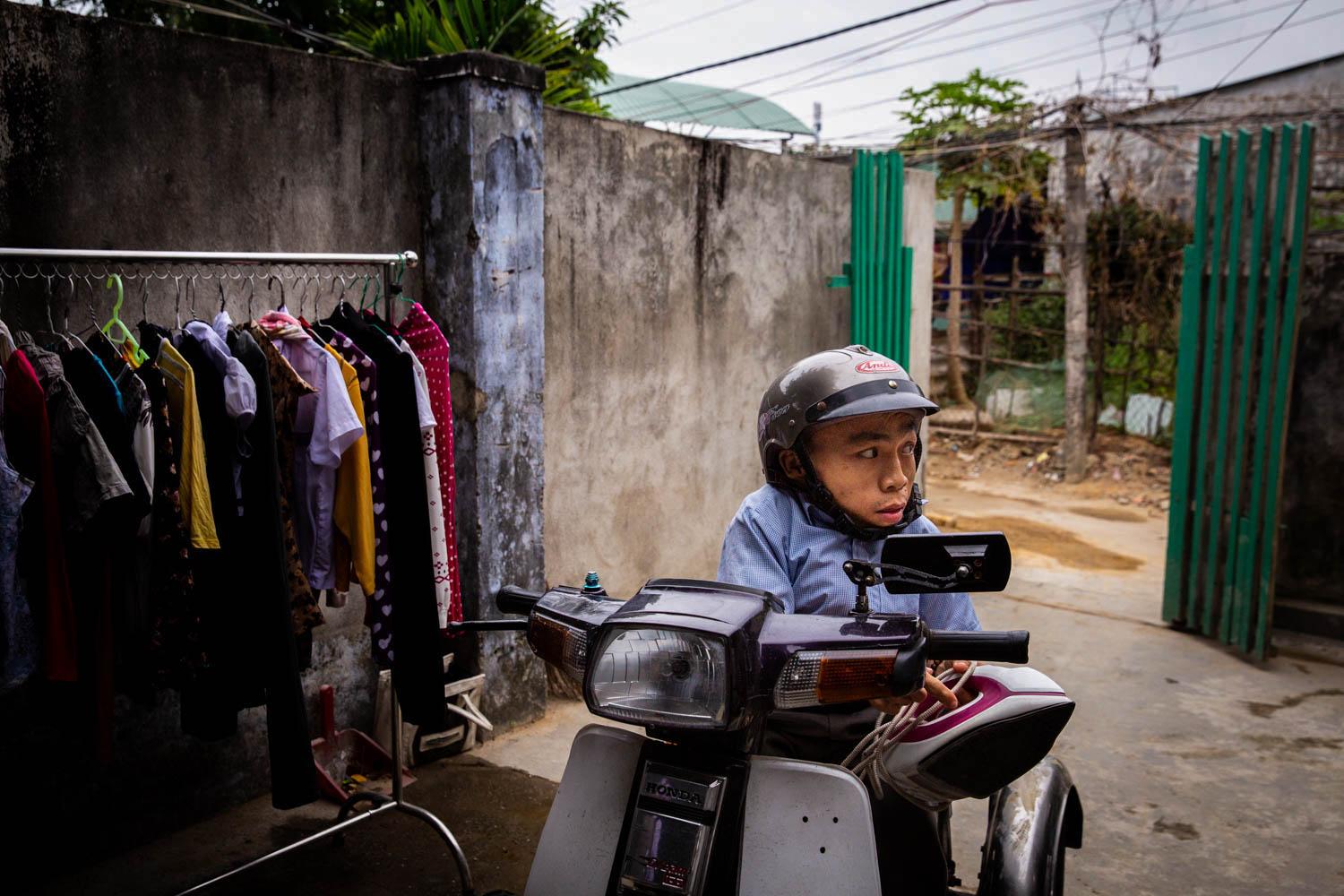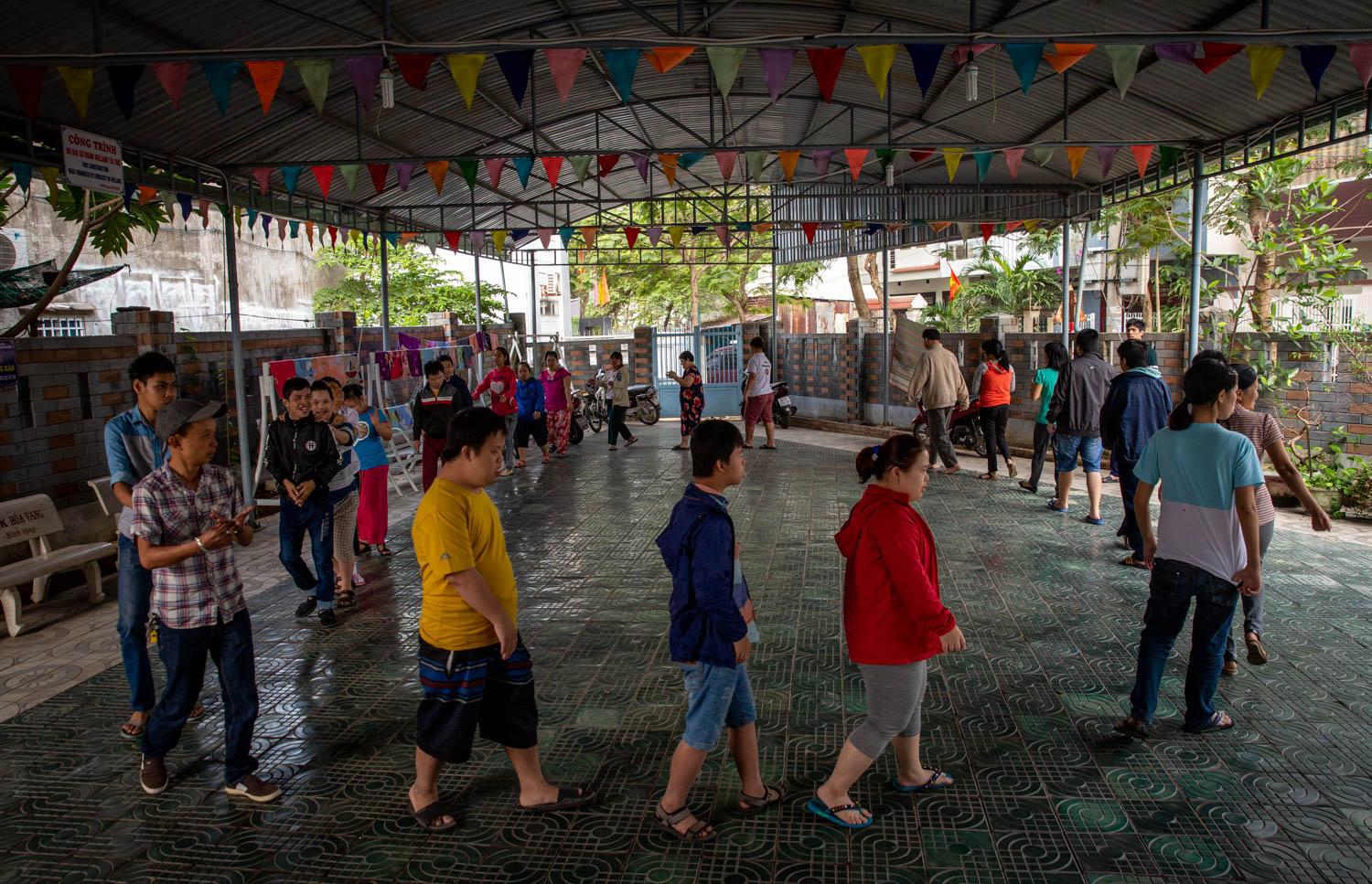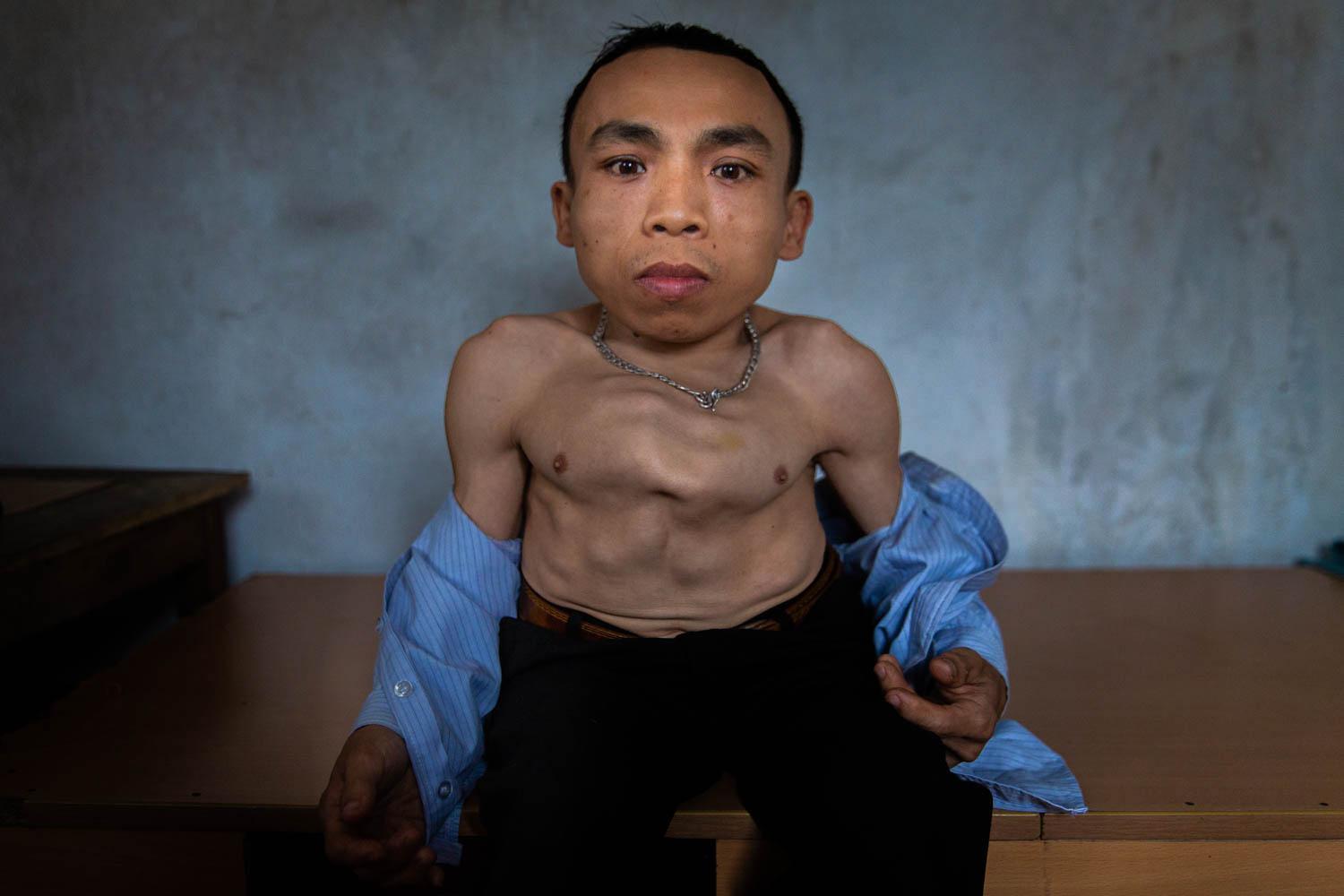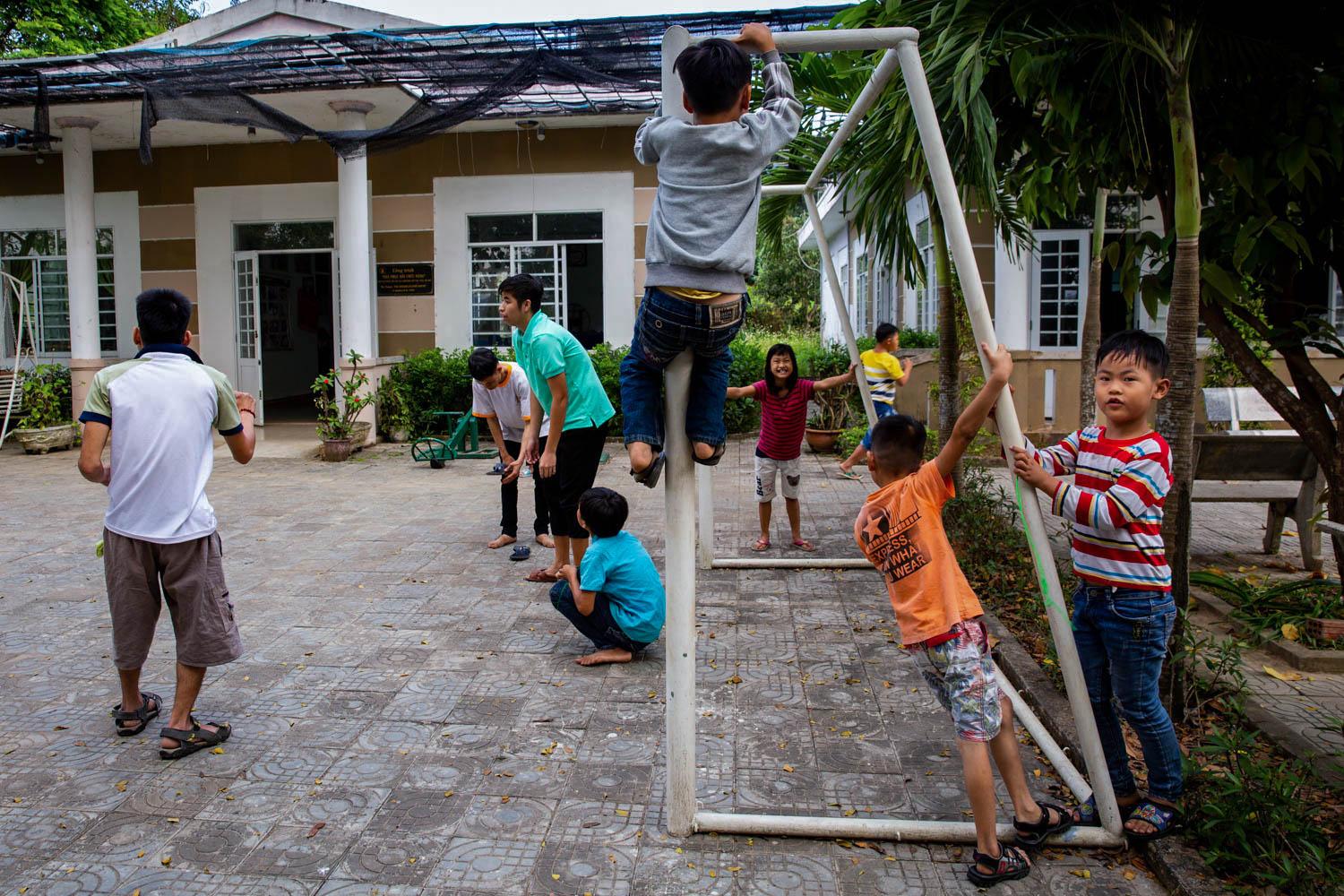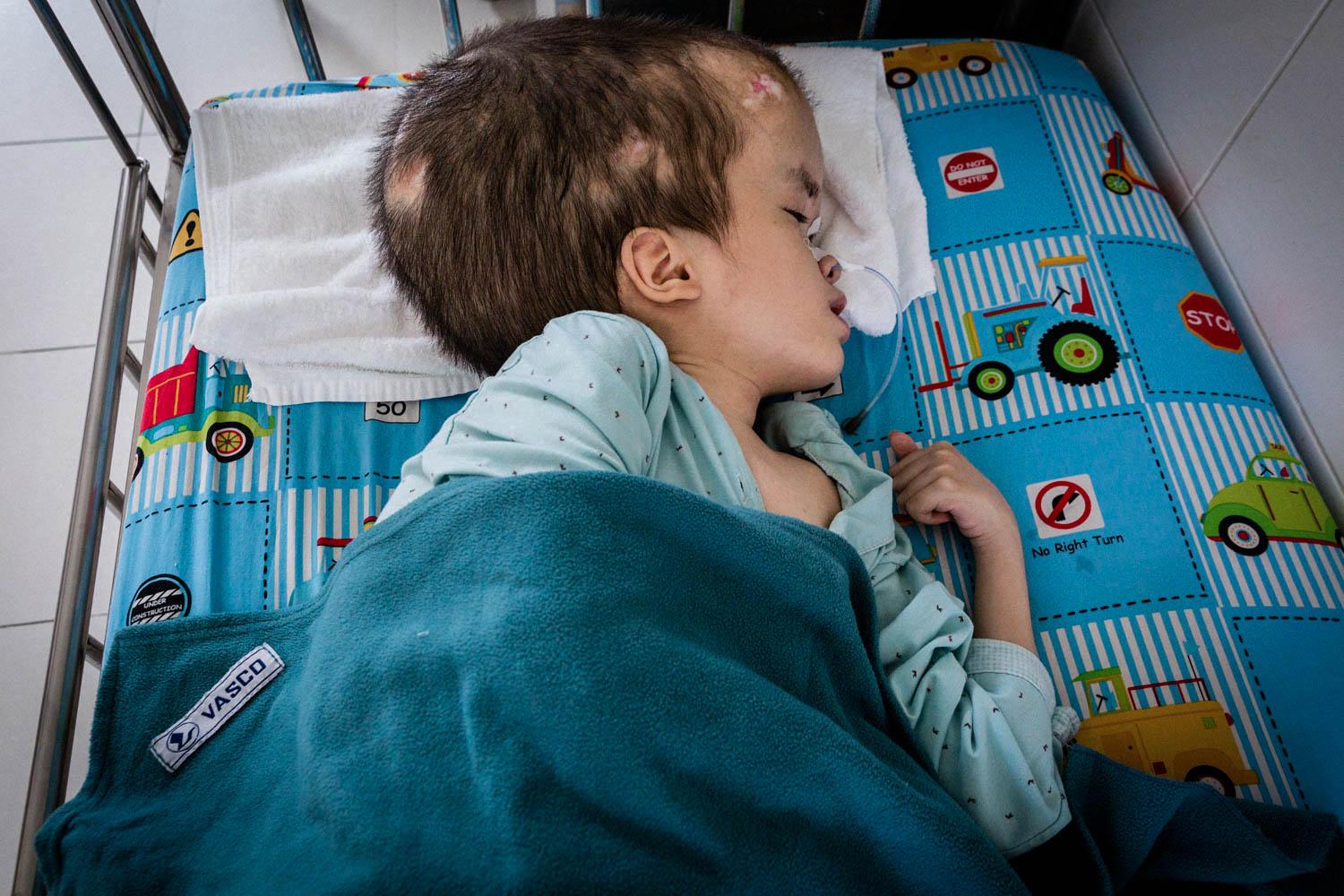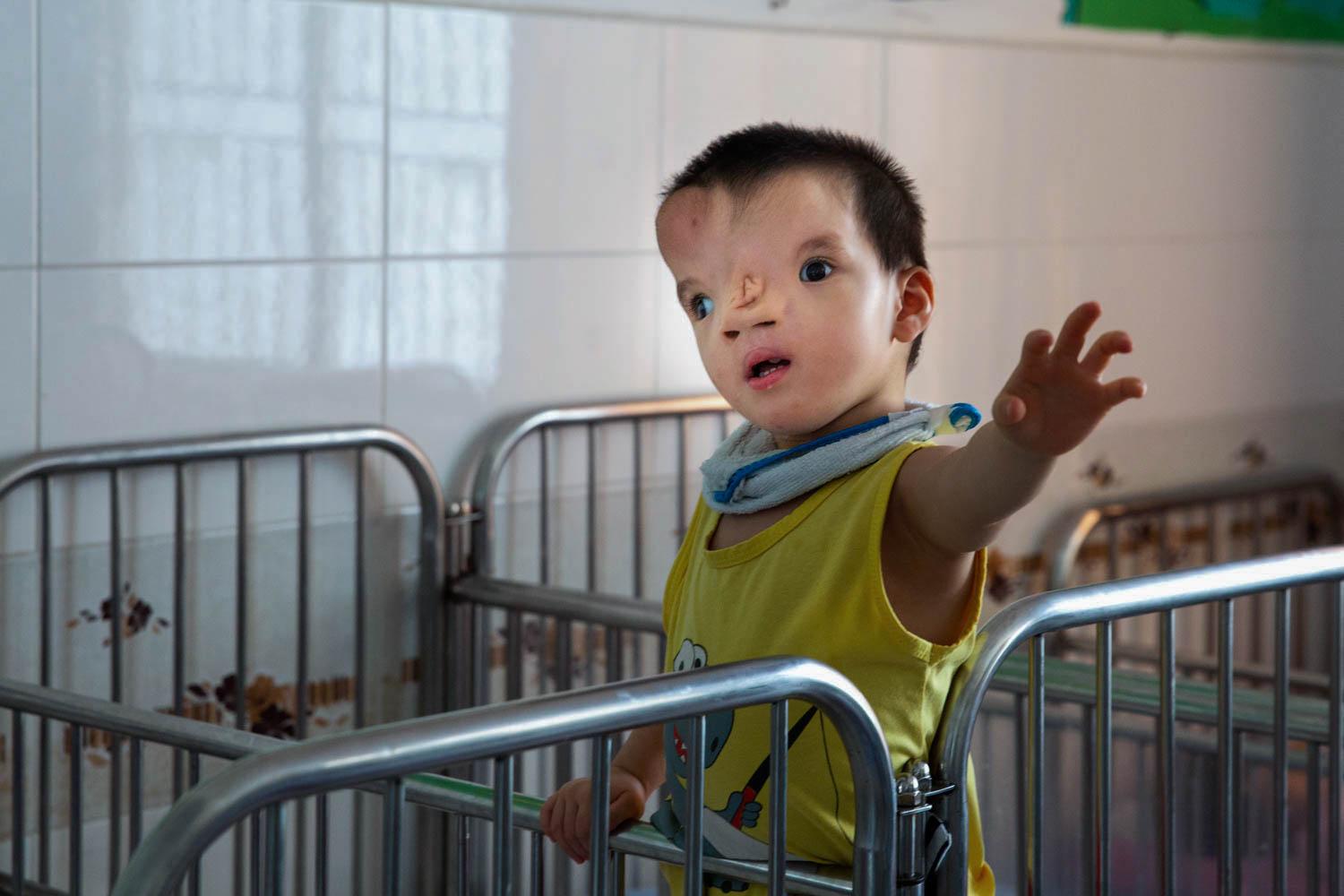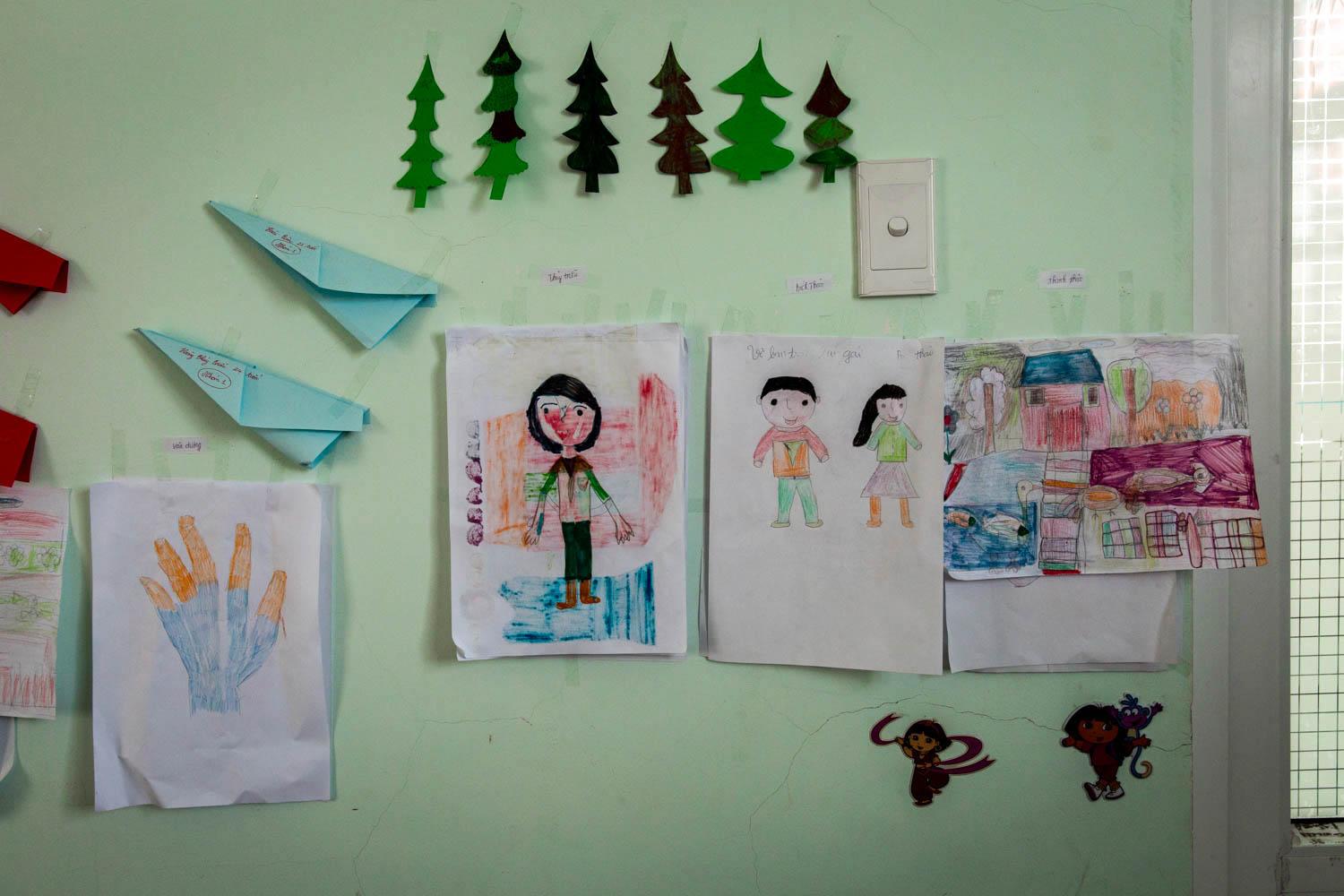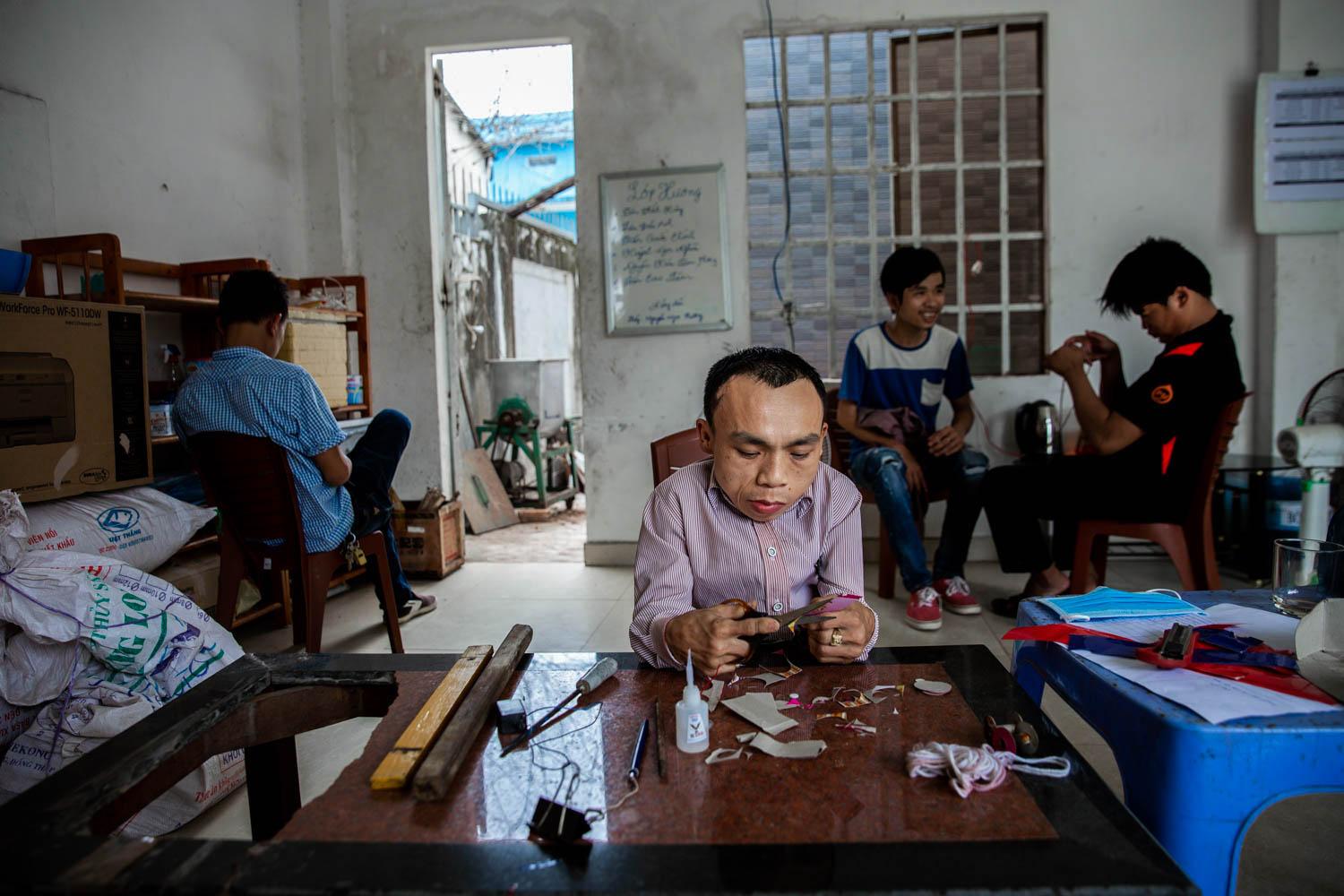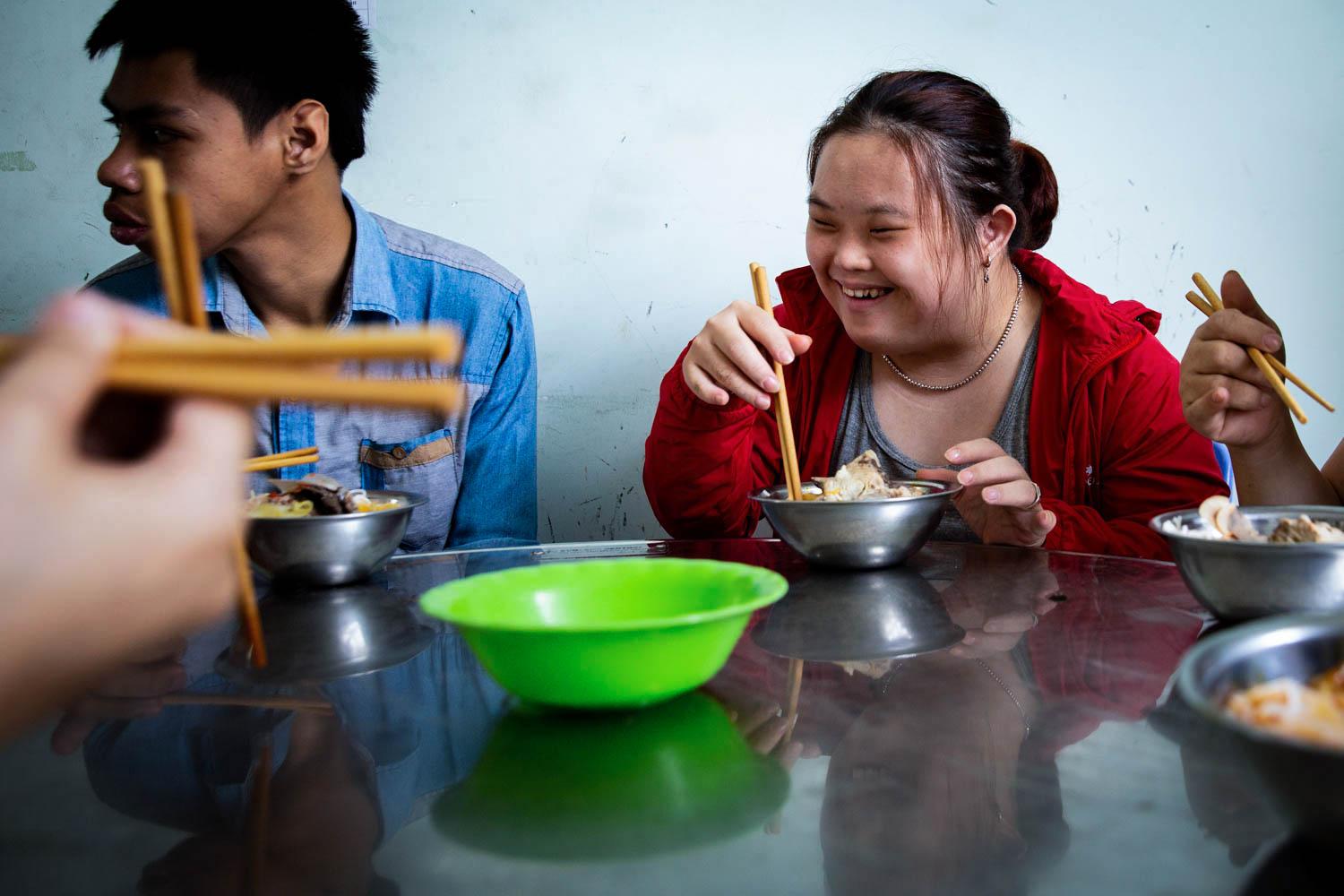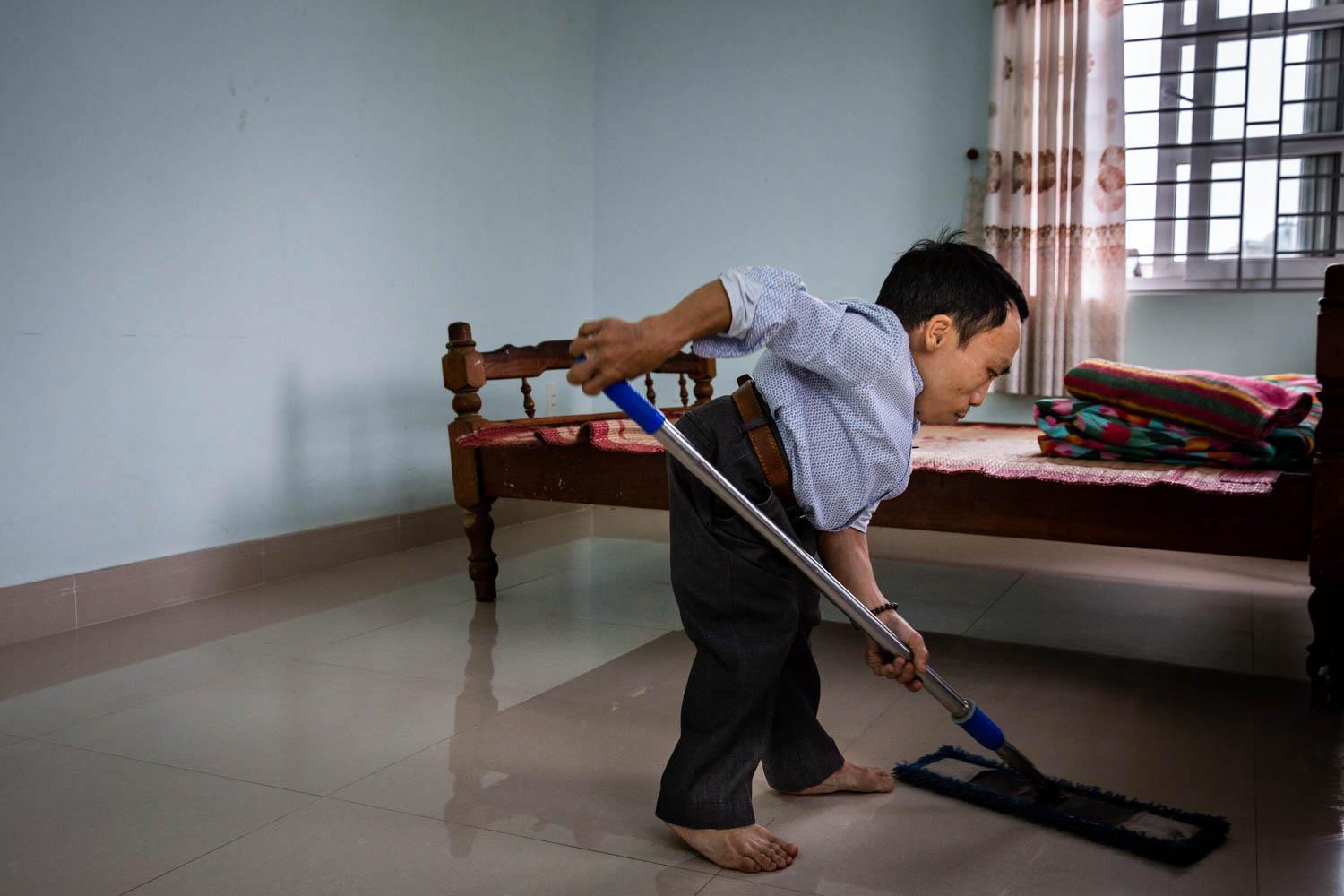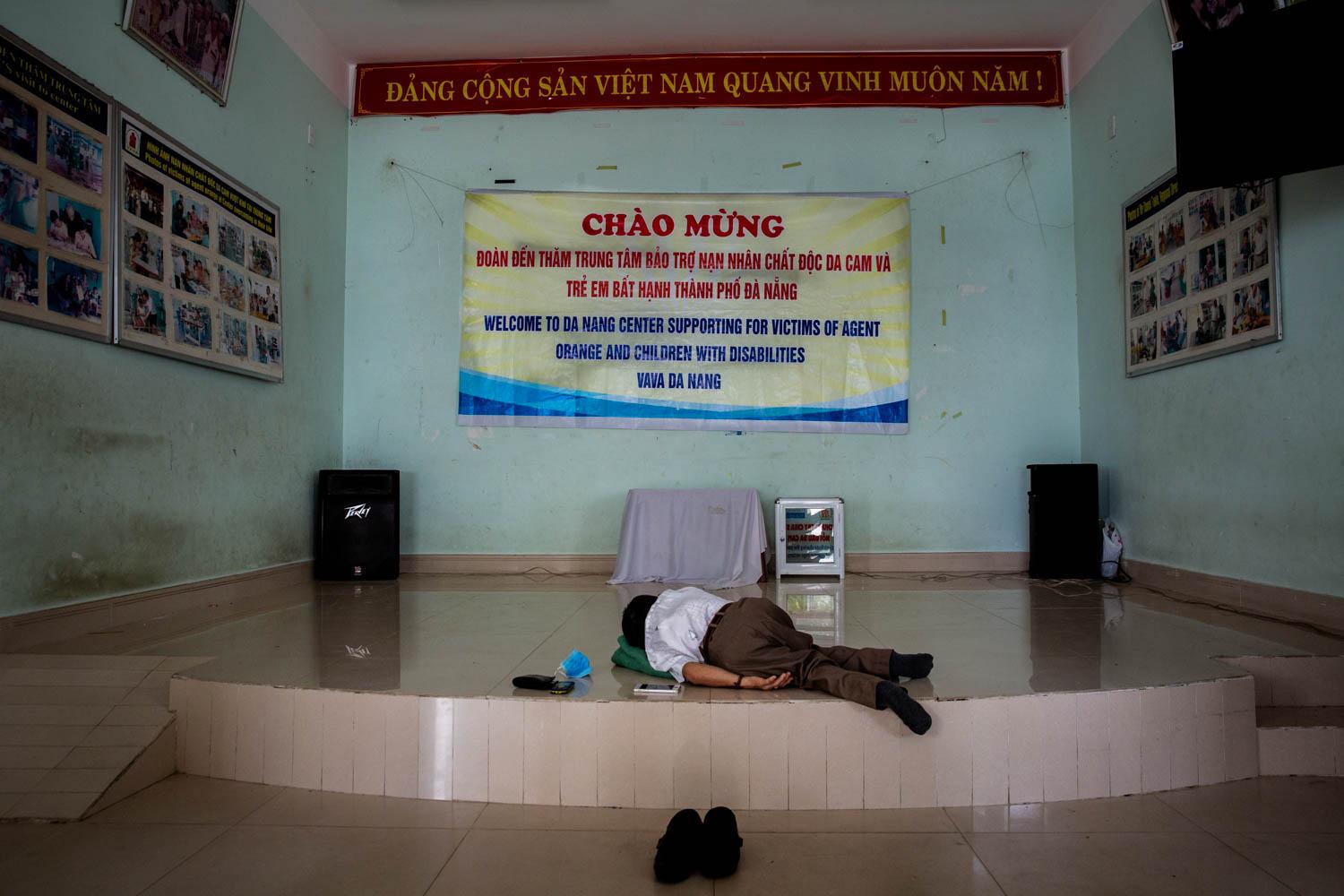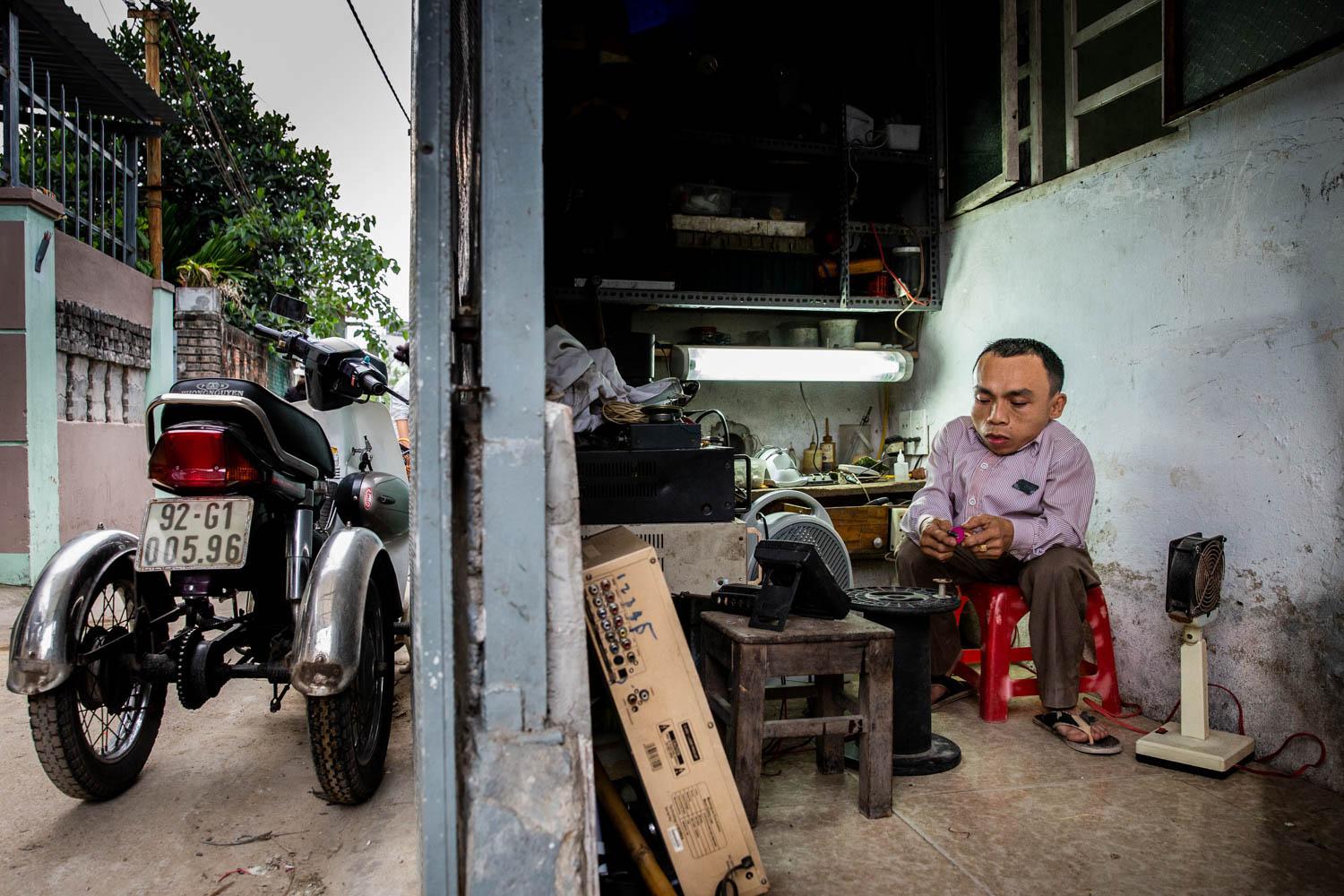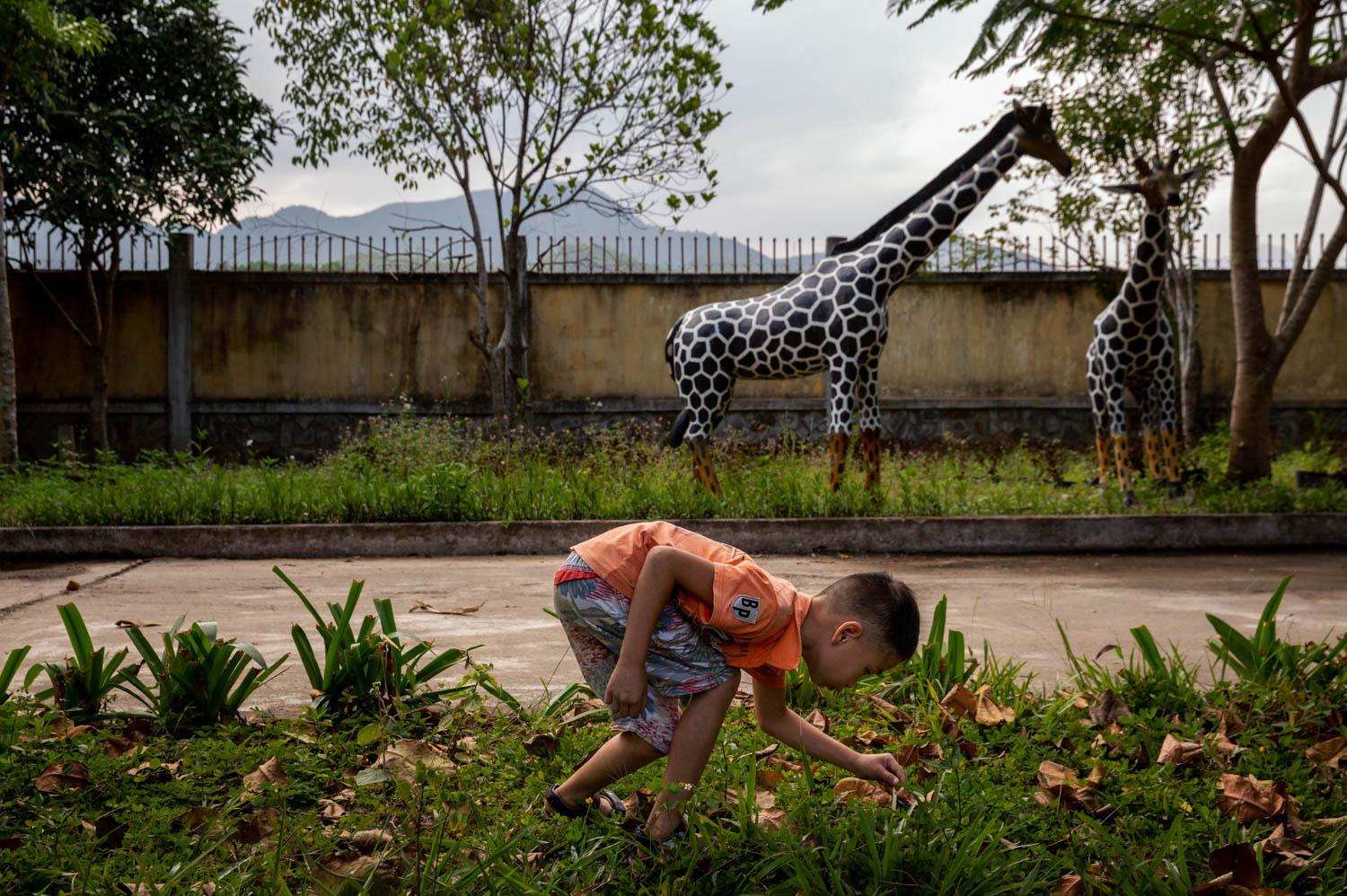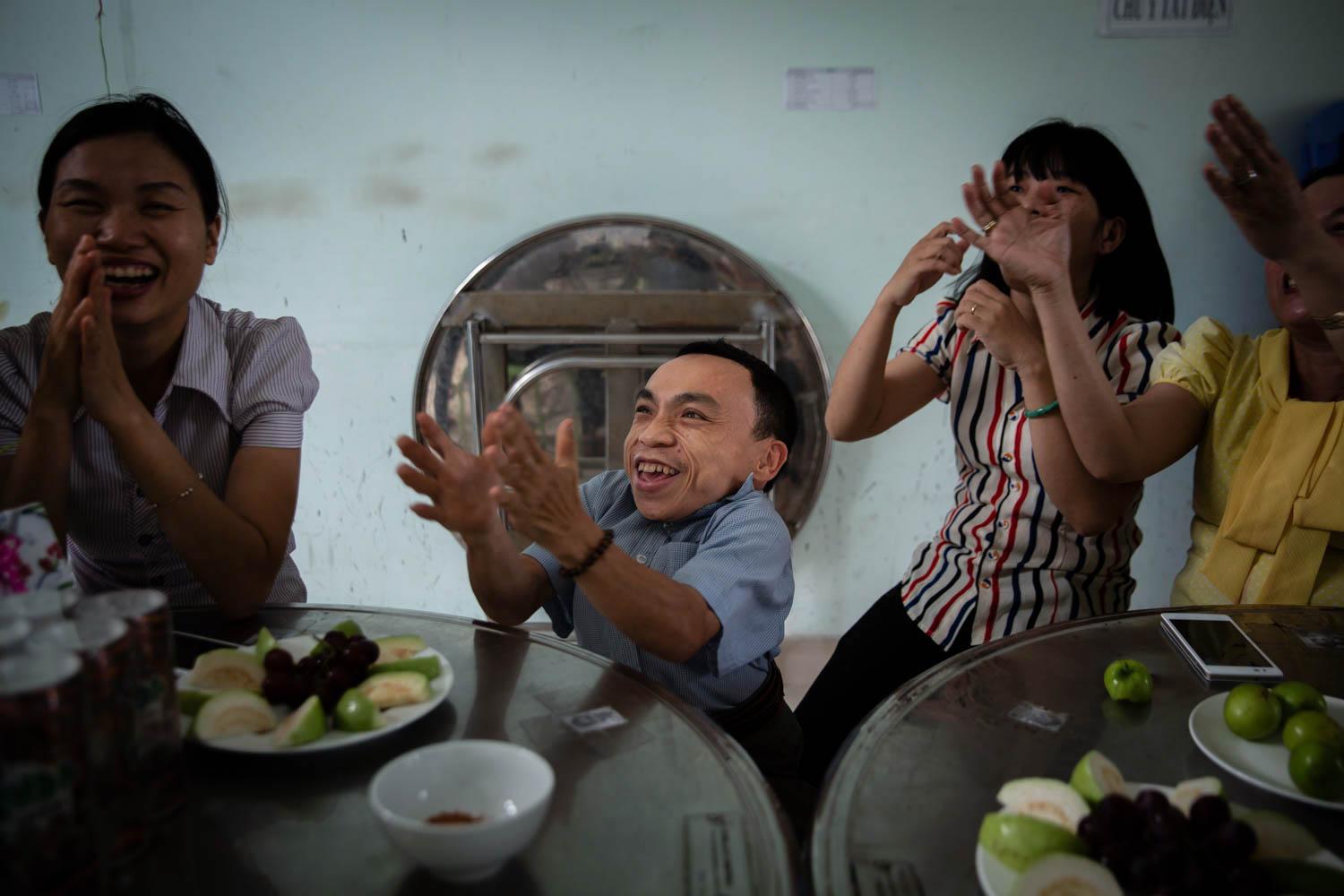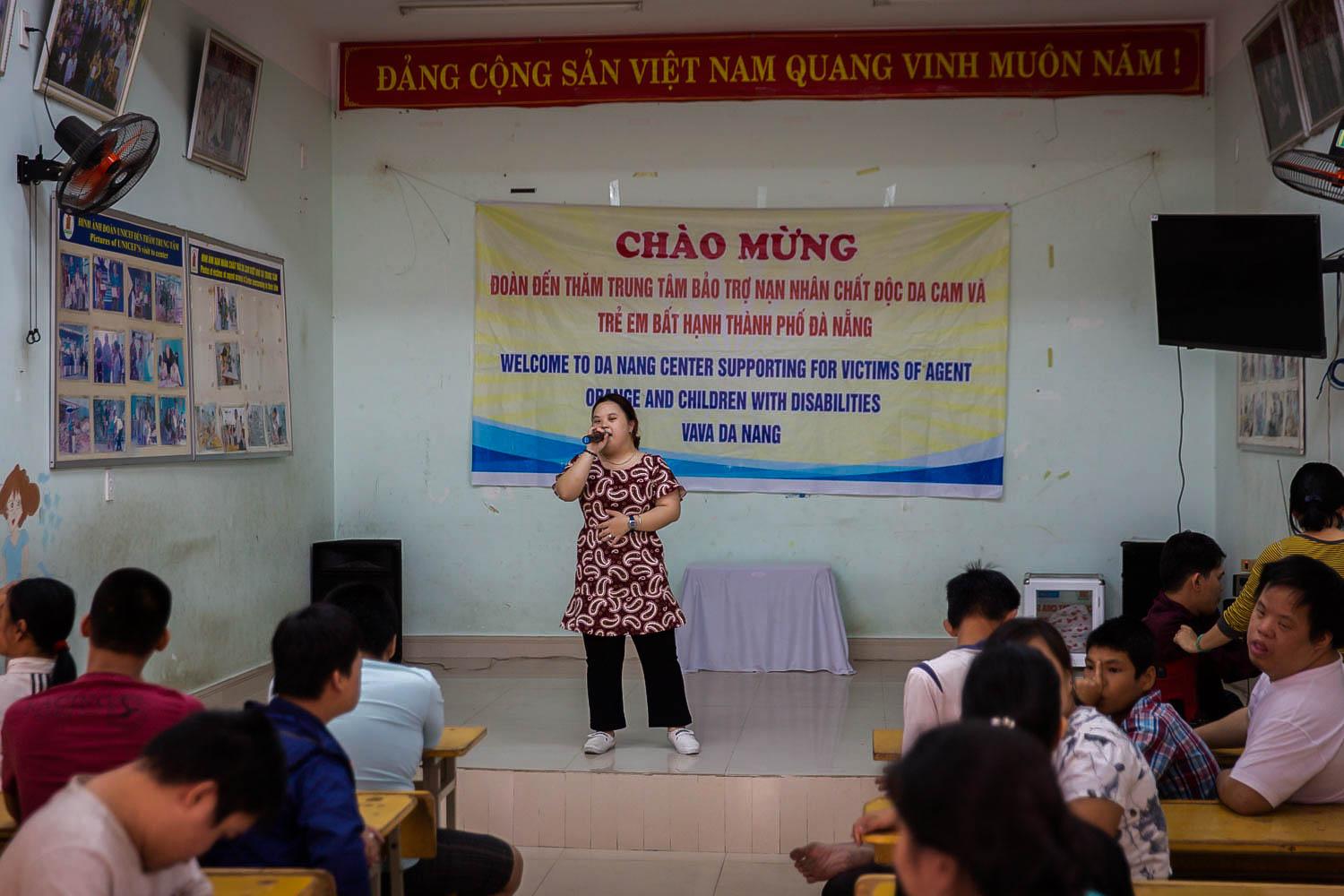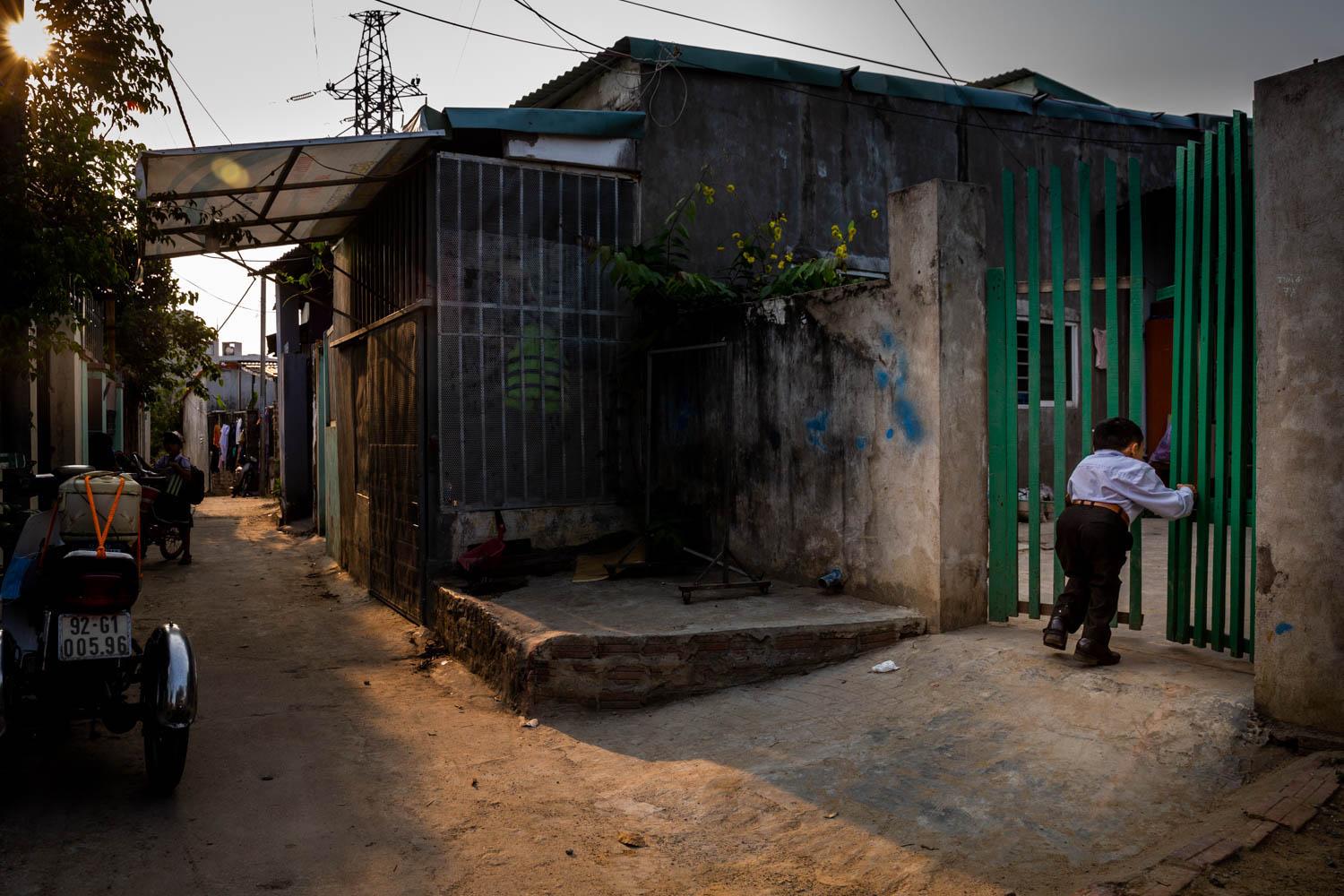Public Project
The Generational Legacy of War
One Vietnamese victim has dedicated his life to advocating for afflicted third- and fourth-generation children and young-adults in his home of Da Nang, Vietnam.
I first met Phuong in the port city of Da Nang. Phuong (pronounced “Foong”) Nguyen, age 39, is a second-generation victim of Agent Orange (dioxin), a chemical defoliant used by American troops during the American [Vietnam] War. Phuong’s father was a transporter for the Vietcong and was exposed to the chemical during his service on the Ho Chi Minh Trail.
Though born five years after the end of the war, Phuong suffers from its effects: He has a severely deformed upper torso, disfigured limbs, stands at a fraction of the height of his peers, and suffers from a wide range of respiratory and heart issues. Despite—and ultimately because of—these challenges, Phuong has dedicated his life to helping and advocating for others affected by Agent Orange. Phuong regularly hosts international aid organizations and dignitaries, is an outspoken voice in the community in an effort to obtain funding and aid for Vietnamese victims, and works full-time at the Da Nang Association for Victims of Agent Orange (DAVA).
In 1961, the United States government authorized “Operation Ranch Hand,” an edict that allowed the use of a powerful mixture of chemical defoliants throughout Vietnam. The two countries were at war, and the program was purportedly intended to eliminate forest cover aiding North Vietnamese troops and destroy crops used to feed them.
By 1969, it had become widely known that the 2,4,5-T component of Agent Orange was contaminated with dioxin, a highly toxic chemical that causes a staggering range of reproductive, developmental, psychosocial and physical delays and deformities. The United States banned the herbicide in April of 1970 but did not immediately stop its use. Between 1961 and 1972, the United States sprayed more than 19 million gallons over 4.5 million acres of land in Vietnam.
In many instances, the effects of military conflict are acute and devastating but relatively short-lived. More than four decades years after the launch of Operation Ranch Hand, second- and third-generation Vietnamese are still suffering the debilitating effects of Agent Orange. And, in only the past several years, the birth of an afflicted fourth generation has been reported.
When asked if he was angry that he was not born “like everyone else” Phuong paused for a moment before answering: “My anger turned to happiness when I realized I could help people. It was only then I accepted that maybe this was my destiny.”
Though he is quick to smile, is dedicated to his work and actively chooses a positive outlook Phuong admits that he carries a deep sadness–he is lonely and desires a wife and even children. Though not impossible, Phuong believes it unlikely he will find love.
His dream? To travel to the United States and speak to Congress; he wants Americans to see the human toll of Agent Orange in the hope people better understand the widespread, devastating, long-term, and ongoing effects of the Vietnam War on civilians.
6,332

